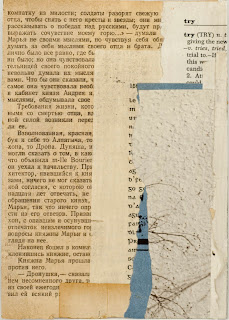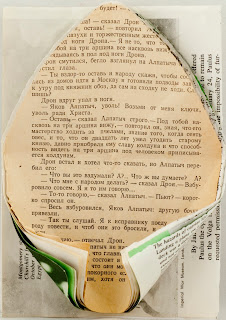
Here's a passage from Volume III, Part Two, Chapter I.
"In historical writings about the year 1812, French authors very much like to speak of how Napoleon sensed the danger of extending his line, how he sought a battle, how his marshals advised him to stop at Smolensk, and to bring forth other similar arguments to prove that even the danger of the campaign was supposedly understood; and Russian authors like still more to speak of how from the beginning of the campaign there existed a Scythian war plan of luring Napoleon into the depths of Russia, and one ascribes this plan to Pfuel, another to some Frenchman, another to Toll, another to the emperor Alexander himself, pointing to reports, projects, and letters that indeed contain hints at such a way of action. But all these hints at the forseeing of what happened, both on the French and on the part of the Russians, are now put forward only because events justified them. If the events had not occurred, those hints would have been forgotten, as thousands and millions of contrary hints and suppositions that were current then, but turned out to be incorrect, are now forgotten. There are always so many suppositions conjectures about the outcome of every event which takes place that, however it ends, people will always be found who say: "I said back then that it would be like this," quite forgetting that among their numberless suppositions, there were some completely contrary."
Just yesterday I heard a clip on the radio, a Republican presidential contender blasting the current Administration for all that has gone wrong over the course of the last few years. As if all that has passed could have been steered a different way -- as if the contender could have had perfect foresight and could have made different choices. The Buddha got this one right 2500 years ago -- how there are so many seen and unseen forces at work and that the best course of action is to see clearly what is happening and to make wise and loving choices based on what one is confronting.To think that we can control and predict events in our individual lives is the cause of much suffering, much less on the level of war and politics.
In this piece, you can see Moscow on the left, still intact before the fires set by Napoleon's army. -- Lola
Lola Baltzell
from page 105-106, Volume 2 of original text
collage
made 3/10/11
Pevear/Volokhonsky translation page 683-684





























